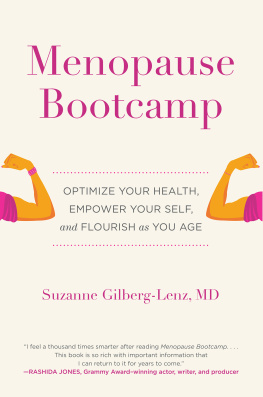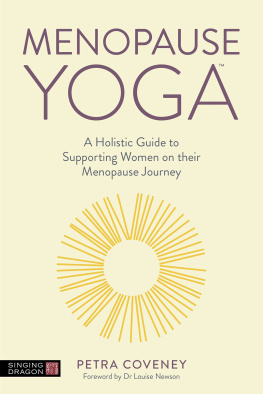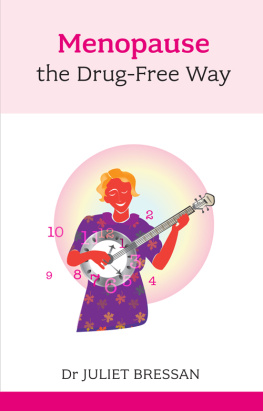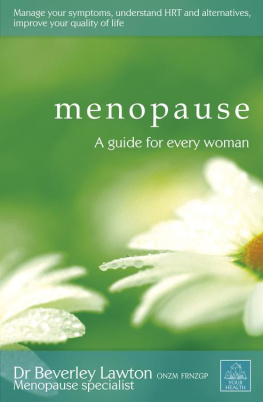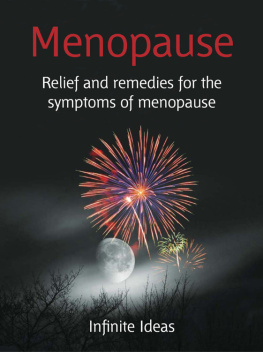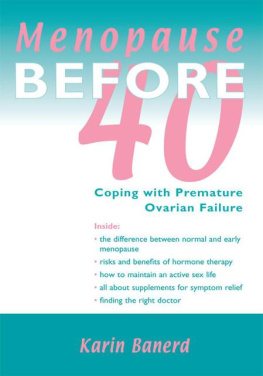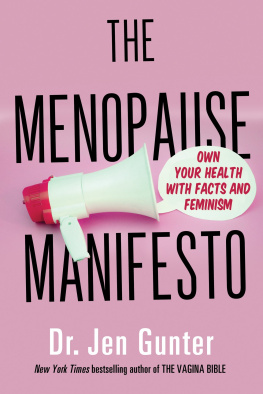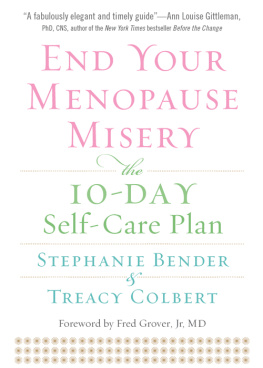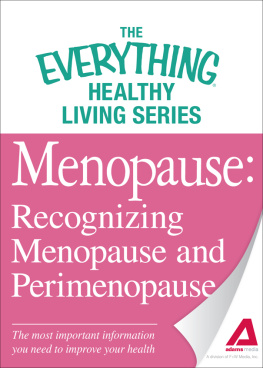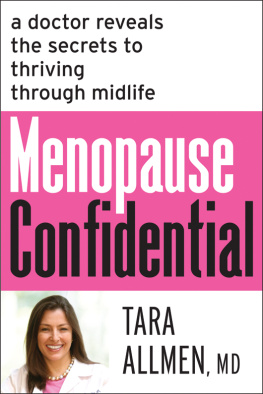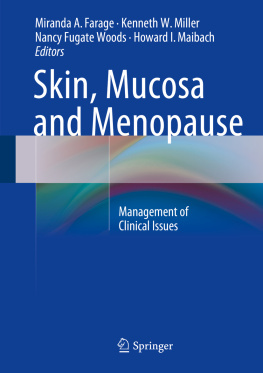Contents
Guide
Thank you to my third grade teacher, Miss Creigh. You were right.
The one person who will never leave us, whom we will never lose, is ourself. Learning to love our female selves is where our search for love must begin.
bell hooks
Every beginning is only a sequel, after all, and the book of events is always open halfway through.
Wislawa Szymborska
Some profound journeys begin in a patients room thats adorned with Tibetan prayer flags. Others start at the hair salon.
I want to tell you about something that Im still trying to process. Two years ago, I decided to stop coloring my hair. I wont lie, it was no act of feminist defiance of beauty standardsat least not at first. I was tired of spending so much time and money getting my hair done. And for the record, this was two years before covid-19 forced a bunch of people to embrace their gray. I had hatched a plan with my hairdresser, whos been a dear friend for fifteen years, to have one last fling: Id dye my auburn hair a bright shade of blond, then allow it to go gray. So I was sitting in the chair, and he started mixing up a pot of chestnut hair coloring without my permission. When I questioned him about it, he said, Youre not ready. I was dumbfounded. Im not ready? Says who?
What he was really saying was that I needed to keep up the ruse of youth and it was his job as my friend to help me do so. To him, and to a lot of other people, having gray hair is like saying Hi, Im Suzanne, and Im an old woman. And of course, Im not. I maintain a thriving private practice. I still feel passion. I give interviews and run bootcamps and consider myself an activist for the causes I believe in. But gray = old, and its all downhill from there. Listen, it wasnt just him. Everyone seemed to have an opinion on my damn hair: friends, colleagues, even patients. They werent trying to be mean. I think they were honestly confused. The comments were underpinned by a question: Why wouldnt you want to look younger? The women in their sixties and seventies were the most befuddled. It was as if the subterfuge works only if we are all pretending together. Now more than ever before, to look your age is to break the rulesand not in a good way. Think about that for a minute. Im an ob-gyn whos attended the births of thousands of babies and raised two of her own. Theres no way I could be thirty. I needed all fifty-five of my years to get to where I am. And now I do embrace my gray as an act of feminist resistancenot to mention that it is a huge time-saver and I have better things to do with my money. Theres more to unpack, and you came here to talk about menopause, not my hair. Ill just say one more thing: If I have learned anything in my fifty-five years, its that women are expected to look and behave in a certain way. And letting our hair go gray means letting ourselves go; in other words, owning our actual age is seen as some sort of defeat or lack of interest in our beauty.
Talking about menopause is like letting our gray grow in. For many of us its scary, an admission that were not young anymore. Thats one of the major reasons, I believe, that we dont talk about it. But that silence comes at a huge cost to both our health and our ability to live fully in our bodies. So right now, in these pages, were going to start to change that. Menopause Bootcamp is going to educate you on what happens in your body during the menopausal transition and afterward. Well learn about the symptoms and the solutions, including both the latest research and evidence-based wellness practices. And well explore ways in which you can make this time of life feel authentic and joyful.
The fact that were here discussing menopause is in itself a small act of rebellion. Until very recently, few of us talked about it in public, even though millions of women are going through some stage of it right now. How much do you discuss it? Sure, its not really dinner party conversation, but at least it should be fair game with your friends. After two decades of practice, I can tell you that there are women who wont talk about it with their closest friends. Or with their own mothers and daughters. It can even be hard for them to bring it up with their doctors.
Before we continue, I want to make a quick note about pronouns. Throughout this book I refer to both women and people when describing those who are going through the menopause transition. Some people going through menopause are cis women, meaning that they were assigned female at birth and identify as a woman. Likewise, people across the gender spectrum can experience menopause. Hence my effort to use language to invite all people into this journey. And although my solution to pronouns may be inelegant (I sent the books copy editor a basket of muffins), I hope youll find it to be respectful and inclusive.
Menopause Bootcamp is about hoisting up the big tent that covers all of us. Our experiences with our symptoms and our life conditions are unique, but there are overriding societal winds that encircle all of us. In addition to recognizing yourself in this book, I hope you will also acknowledge the experiences of others. Our common denominator? Weve all got highs, and weve all got lows. This is not lip service; were going to see one another through them, together.
I hope my authentic interest and recognition of our similarities and differences is also a reason why my patients feel comfortable enough to speak about their concerns with me. They feel seen and their experiences validated. Over the past few years, Ive become something of a menopause guru. I think thats because Im always interested in whatever no one else is into. Dry vagina? Check! Painful sex? Check! Leaking urine? Check! When a patient comes to me with a problem Im not up on, I go out and learn more about it. Because if its happening to her, its happening to a lot of people. It feeds my endless curiosity about the human experience.
But to get thereto be able to talk about vaginal tissue and sex drive and skin changeswe have to convince women to trust that doctors care about their overall well-being. That seems like Doctoring 101, right? Well, the medical system has a long and disgusting history of overlooking, ignoring, and manipulating women. Research studies have for decades not included women in their pool of test subjects, which means that for years weve been subjected to treatments whose safety and efficacy have been proven only for men. There havent even been enough studies on womens health issues themselves. There are predatory doctors and others shilling bullshit products. And inferior care especially happens to older folks, people of color, those across the gender spectrum, and persons with disabilities, among others.
For all those reasons, I created a Menopause Bootcamp series in southern California, where I live and practice, in which a group of women get together to learn about the changes their bodies are undergoing, hear about a wide variety of solutions, share their experiences, and gain a sense of community. If you cant make it to one, this book will give you all the information and tools you need to help empower your life.
Oftentimes, we start out with identifying goals. I have a few myself: to demystify how the transition actually occurs, to give women information they need to make better decisions about their bodies, and to dispel the pernicious belief that menopause is an ending. Its not. For many, it is a new beginning.
Before we get into some of the reasons why I believe this weird taboo around being postmenopausal exists, lets lay out a few facts. The median age of menopause onset is 51.4 years, but the menopause transition typically begins eight to ten years before that. Clinically speaking, you are in menopause when your period has been absent for twelve consecutive months. In that way, its straightforward. What makes this time unique is that the symptoms are different for every person going through it.

